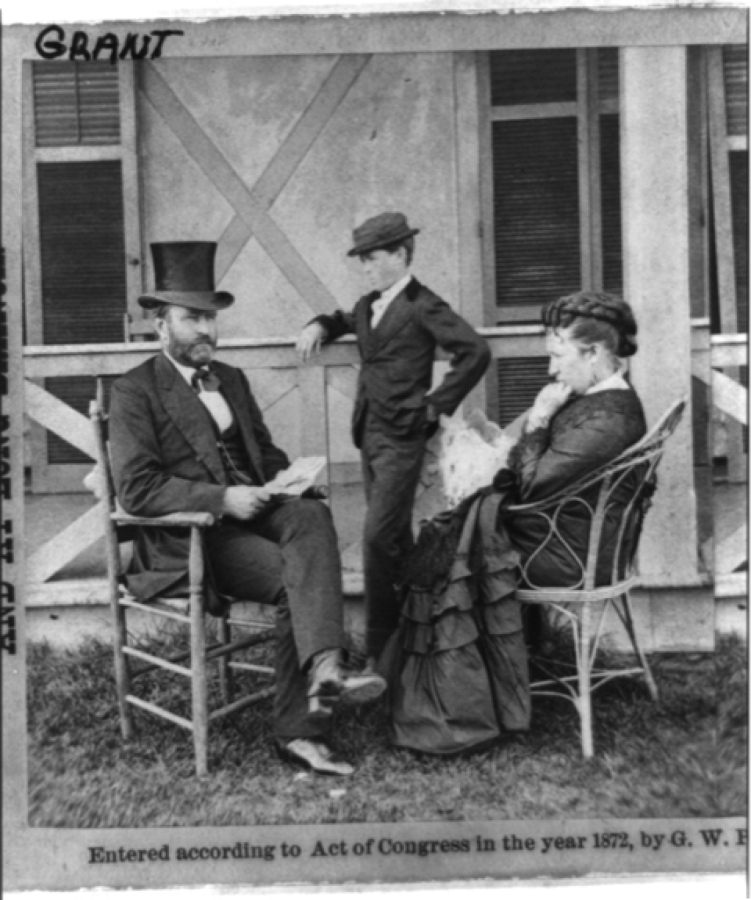Ulysses S. Grant first arrived at the Columbia Barracks as a soldier in 1852 with the 4th Infantry regiment. When he returned in 1879, the post had been renamed Vancouver Barracks. He came back as a Civil War hero and a two-term ex-president after traveling the world for nearly two years.
As a 30-year-old brevet captain stationed here, Grant (1822-1885) wrote about his lonesomeness to his wife, Julia. He found the bragging, profanity and carousing of other officers distasteful.
It’s likely his isolation and loneliness for his family turned him to drink while stationed at the barracks and earned him a reputation as a drunk. One recent biographer suggests Grant possessed a low tolerance for liquor so even a small amount altered his demeanor.
While posted in Vancouver, Grant was the quartermaster and lived in a small, framed building called the quartermaster’s depot, not the big house that bears his name today. (Evergreen Boulevard was once known as Grant Avenue, and the house he never lived in bears his name as a tribute to him.)
Grant strove to make enough money to bring his family to Vancouver. He and Lt. Henry Wallen speculated in potatoes. They rented land east of today’s Pearson Field between the fork at Fifth Street and Davis Avenue. Unfortunately, others executed similar plans driving the spud price down. Then, the Columbia River flooded, washing his tubers out to sea. Next, he and Rufus Ingalls tried cutting ice and sending it to San Francisco, which also failed. Grant also traded in horses, hogs, cattle, salt pork and cord wood for river steamers, and engaged in an ill-fated chicken venture.
The Army promoted Grant to full captaincy and directed him to fill an empty Fort Humboldt position in 1854. Shortly after, he resigned his commission.
In 1879, the SS Saint Paul delivered Grant and his wife, Julia, to Vancouver. The city’s response to the Civil War general and ex-president was enthusiastically spectacular. Every home left its lamps blazing. Chinese lanterns and bonfires lit the streets.
Local politicians and legislators waited at the dock to greet Grant, and 1,000 citizens, torches in hand, lined up showing the general the path from dockside to the parade ground. As the general descended the gangplank, the band played Handel’s “See, the Conquering Hero Comes.”
The post commander, Gen. O.O. Howard, who fought alongside Grant during the Civil War, hailed his former comrade with a 21-gun salute. Five companies in dress uniforms marched up Main Street and then east to the parade ground. Grant and his wife followed in a carriage to Howard’s house for a reception. Washington Gov. Elisha P. Ferry and Vancouver Mayor Louis Sohns spoke to the crowd.
The following day, Grant showed Julia his failed potato farm, and they explored the house bearing his name. After a speech in the park that same day, Grant and his wife left for Portland, their next stop before they headed back east.
Martin Middlewood is editor of the Clark County Historical Society Annual. Reach him at ClarkCoHist@gmail.com.



